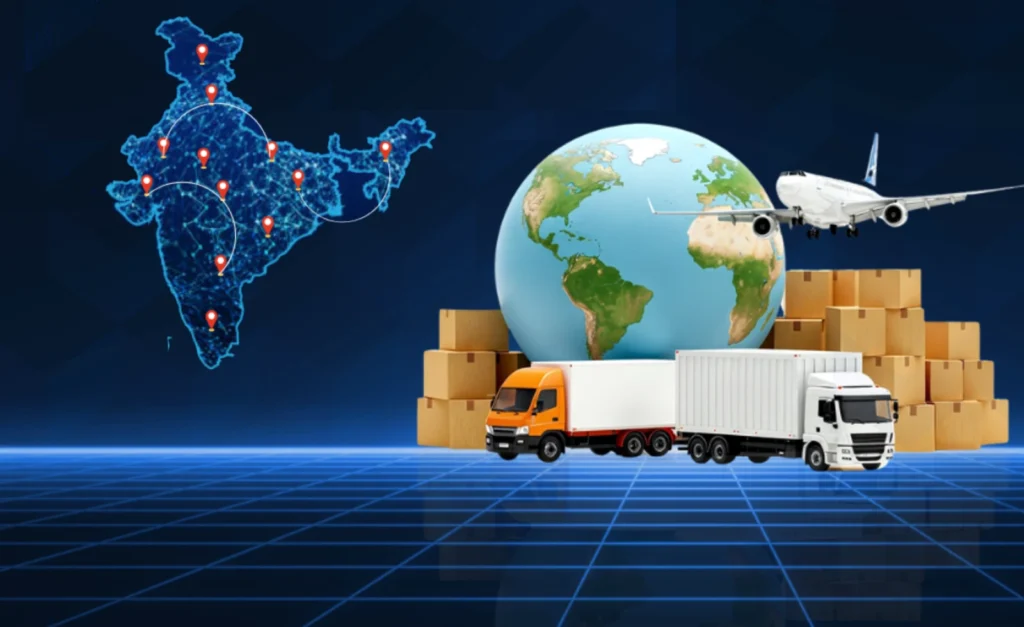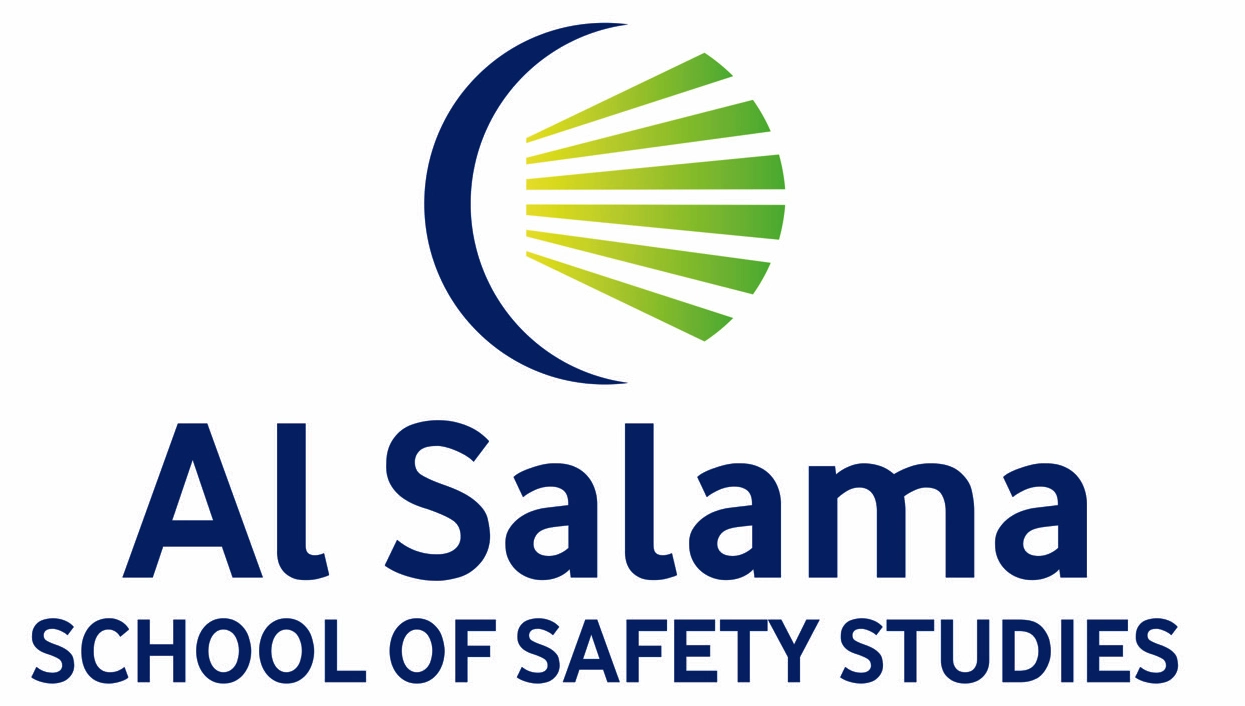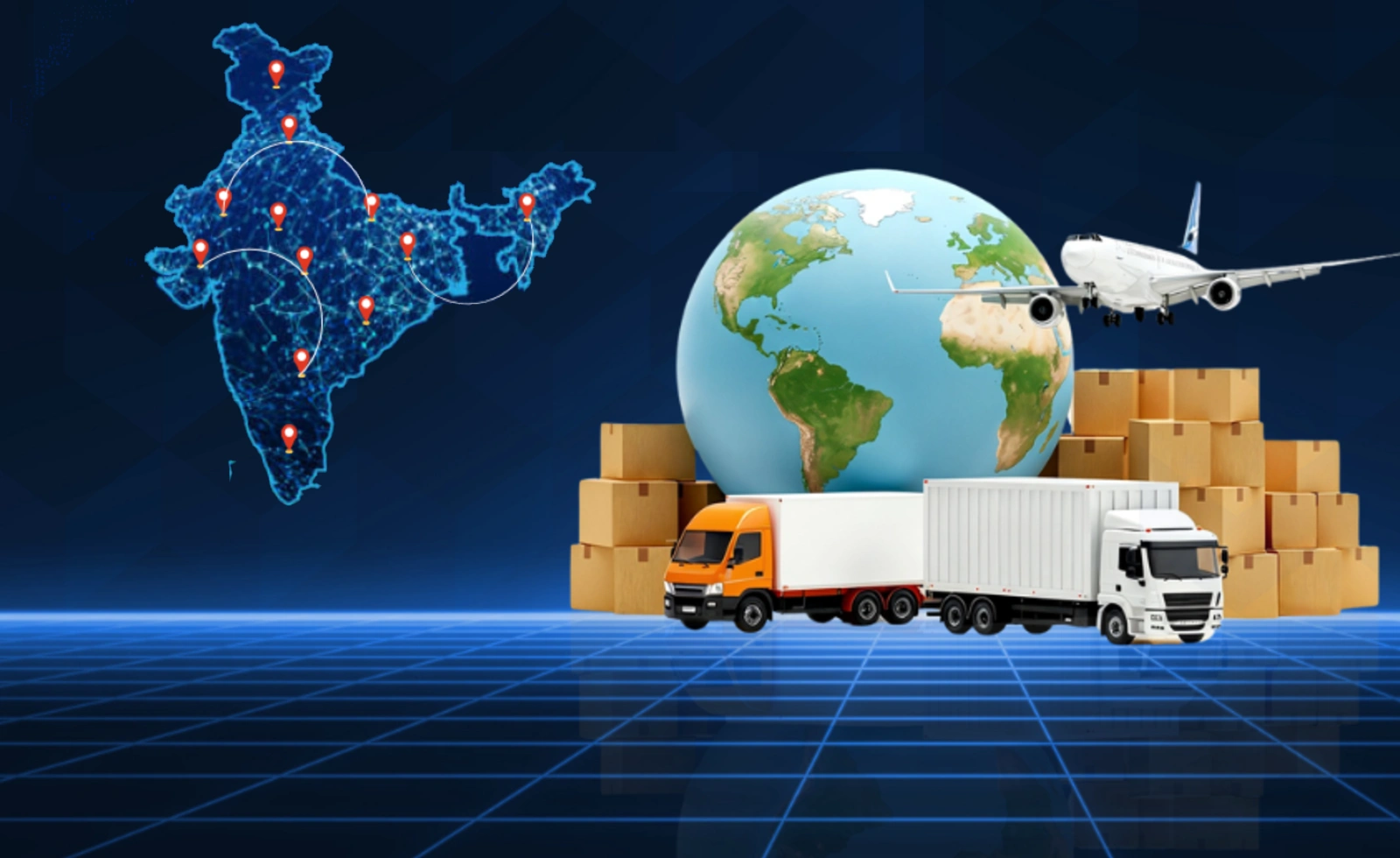National Logistics Policy 2022: Opportunities for the Youth of Kerala – Breaking Down What It Means for Future Supply Chain Professionals
India stands on the brink of a logistics revolution. The National Logistics Policy 2022, launched on September 17, 2022, presents unprecedented career opportunities for young professionals in Kerala and across the nation. This comprehensive policy framework aims to transform the country’s logistics sector from a cost burden into a global competitive advantage. For the youth of Kerala, especially those aspiring to build careers in supply chain management and logistics, understanding this policy is essential for seizing emerging opportunities.

Understanding the National Logistics Policy 2022
The National Logistics Policy (NLP) 2022 addresses a critical challenge facing India’s economy—high logistics costs. Currently, logistics expenses account for 13-14% of India’s GDP, significantly higher than global benchmarks of 8-9% maintained by developed economies. This policy represents the government’s strategic initiative to reduce logistics costs to international standards by 2030, making Indian products more competitive globally.
The policy focuses on key transformation areas including digital integration, multi-modal transport development, infrastructure modernization, and critically, human resource development. It complements the PM Gati Shakti National Master Plan and works in tandem with initiatives like Sagarmala and Bharatmala to create an integrated logistics ecosystem across the nation.
Core Pillars of the National Logistics Policy
The NLP operates through eight key action areas designed to revolutionize how goods move through India:
- Digital Integration Systems for seamless workflow and efficiency
- Standardization of Physical Assets and Service Quality benchmarks
- Multi-Modal Logistics Parks (MMLPs) at 35 strategic locations nationwide
- Logistics Human Resource Development and Capacity Building
- Unified Logistics Interface Platform (E-Logs) for direct government engagement
- Integrated State and City Logistics Plans across all regions
- Export-Import (EXIM) Logistics infrastructure and process improvements
- Logistics Data Bank 2.0 for real-time tracking and visibility
Employment Opportunities and Job Creation
The logistics sector currently employs over 22 million people in India and represents one of the fastest-growing employment segments. Under the National Logistics Policy 2022, the sector is projected to generate an additional 1 crore (10 million) jobs by 2027. For young professionals in Kerala, this translates to countless career pathways that didn’t exist just a few years ago.
The policy acknowledges a critical skills gap in the logistics industry. While demand for qualified logistics professionals continues to surge, the supply of trained workers remains insufficient. This gap presents an ideal entry point for youth willing to invest in specialized training and certifications in logistics and supply chain management.
Supply Chain Roles Transforming Under NLP
The expanded logistics ecosystem creates diverse career opportunities across multiple specializations:
Warehouse and Fulfillment Management:
- Modern warehousing facilities require professionals trained in inventory management systems
- Cold chain specialists for pharmaceutical, agricultural, and food sectors
- Fulfillment centre coordinators managing last-mile delivery networks
Transportation and Fleet Management:
- Multi-modal transportation specialists coordinating road, rail, and waterway logistics
- Fleet operations managers overseeing vehicle tracking and route optimization
- Last-mile delivery coordinators managing final-customer touchpoints
Digital and Technology Roles:
- Logistics software specialists managing E-Logs platform implementations
- Data analysts working with Logistics Data Bank 2.0 for supply chain optimization
- Supply chain digitization consultants helping organizations integrate new systems
Supply Chain Planning and Analytics:
- Network design professionals optimizing distribution networks
- Demand planning specialists managing inventory forecasting
- Procurement professionals managing supplier relationships across multi-modal networks
Compliance and Customs Expertise:
- Export-import compliance specialists navigating EXIM logistics requirements
- Customs clearance coordinators managing streamlined border processes
- Regulatory affairs professionals ensuring adherence to updated logistics standards
Kerala's Strategic Position in the Logistics Revolution
Kerala has positioned itself strategically within India’s logistics transformation. The state secured recognition in the Logistics Ease Across Different States (LEADS) 2023 assessment as a “Fast Mover” category performer. This recognition reflects Kerala’s commitment to creating a business-friendly logistics environment aligned with national policy objectives.
Kerala’s geographic advantages—coastal ports, waterway networks, and road connectivity—make the state a natural hub for logistics development. The state has formulated its own Kerala Logistics Parks Policy (Draft 2024) promoting integrated, cost-efficient, and sustainable logistics systems. Young professionals from Kerala possess the advantage of being in a state actively implementing NLP principles and investing in logistics infrastructure.
Why Youth Should Pursue Logistics and Supply Chain Careers
Global Competitiveness:
The policy aligns India with international supply chain standards, creating opportunities for Kerala’s youth to work with global logistics networks. Professionals working under this new framework will gain exposure to world-class processes and technologies, making them competitive in international job markets.
Career Progression Opportunities:
From entry-level coordinator positions through senior management roles, the expanding logistics sector offers clear career advancement pathways. The government’s focus on human resource development means increased investment in professional training and career development initiatives industry-wide.
Skill Relevance:
Professionals trained under the NLP framework develop skills directly aligned with modern supply chain requirements. Companies adopting digital logistics systems, multi-modal transportation, and data-driven decision-making specifically seek professionals trained in these evolving areas.
Competitive Salaries:
The acute shortage of skilled logistics professionals means companies compete actively for talent. This competition translates to better compensation packages, performance incentives, and career benefits for qualified professionals entering the sector.
Essential Skills for Future Logistics Professionals
Success in the transformed logistics sector requires a specific skill combination:
Technical Skills:
- Digital platform proficiency (E-Logs, ERP systems, supply chain software)
- Data analysis and interpretation capabilities
- Multi-modal transportation coordination knowledge
- Warehouse management system expertise
- Real-time tracking and visibility platform management
Professional Competencies:
- Project management and process improvement
- Vendor and supplier relationship management
- Problem-solving and critical thinking
- Communication across diverse stakeholder groups
- Regulatory compliance and documentation
Industry Knowledge:
- Understanding of supply chain networks and logistics flows
- Familiarity with customs and export-import procedures
- Knowledge of cold chain and specialized logistics requirements
- Awareness of sustainability and reverse logistics principles
How Kerala Youth Can Prepare for These Opportunities
Formal Education and Certifications:
Pursue recognized logistics management courses, supply chain operations, and transportation management. Industry bodies have developed standardized curricula aligned with the NLP framework. Certifications from recognized organizations carry significant weight with employers throughout India.
Practical Training:
Hands-on training provides exposure to actual logistics operations, warehouse management, and supply chain coordination. Working alongside experienced professionals during training helps young people understand industry nuances and develop practical competencies beyond theoretical knowledge.
Technology Proficiency:
Develop strong skills with logistics software platforms, data analysis tools, and digital systems. The NLP’s emphasis on digitization means technology proficiency has become non-negotiable for career advancement in the sector.
Geographic Advantage:
Young professionals in Kerala can leverage the state’s active logistics development initiatives. Interning or training with logistics companies and parks being developed under the state’s logistics policy provides invaluable experience and networking opportunities.
Success Stories and Industry Recognition
Over 65,000 professionals have received specialized training under the National Logistics Policy framework since its launch. More than 100 universities across India now offer logistics-related courses, indicating broad industry recognition of career opportunities. These numbers will continue expanding as the policy implementation accelerates through 2027 and beyond.
Companies operating multi-modal logistics parks report strong demand for trained professionals across all operational levels. This demand creates opportunities for entry-level professionals to gain experience quickly and advance into specialized or management positions within 2-3 years.
The Future of Kerala's Logistics Sector
The expansion of logistics infrastructure throughout Kerala, combined with the state’s existing advantages, positions the region as a logistics hub for South India. The proposed multi-modal logistics parks and improved port connectivity will generate thousands of direct and indirect employment opportunities. Young professionals entering the sector now will be pioneers in building this new infrastructure and establishing Kerala’s reputation in India’s transformed logistics ecosystem.
Your Opportunity Awaits
The National Logistics Policy 2022 represents far more than a government initiative—it signals a fundamental transformation in how India moves goods and manages supply chains. For Kerala’s youth, this transformation creates a rare opportunity to build careers in a dynamic, growing sector aligned with global standards. The combination of government support, infrastructure investment, skill development initiatives, and industry demand creates an ideal environment for young professionals to establish rewarding careers.
Those who invest in logistics training and supply chain expertise today position themselves at the forefront of India’s emergence as a global logistics powerhouse. Whether your interest lies in warehouse operations, transportation management, digital systems, or supply chain planning, the transformed logistics sector offers meaningful career paths with competitive compensation and growth potential. The question isn’t whether opportunities exist—it’s how quickly you’ll move to seize them.



